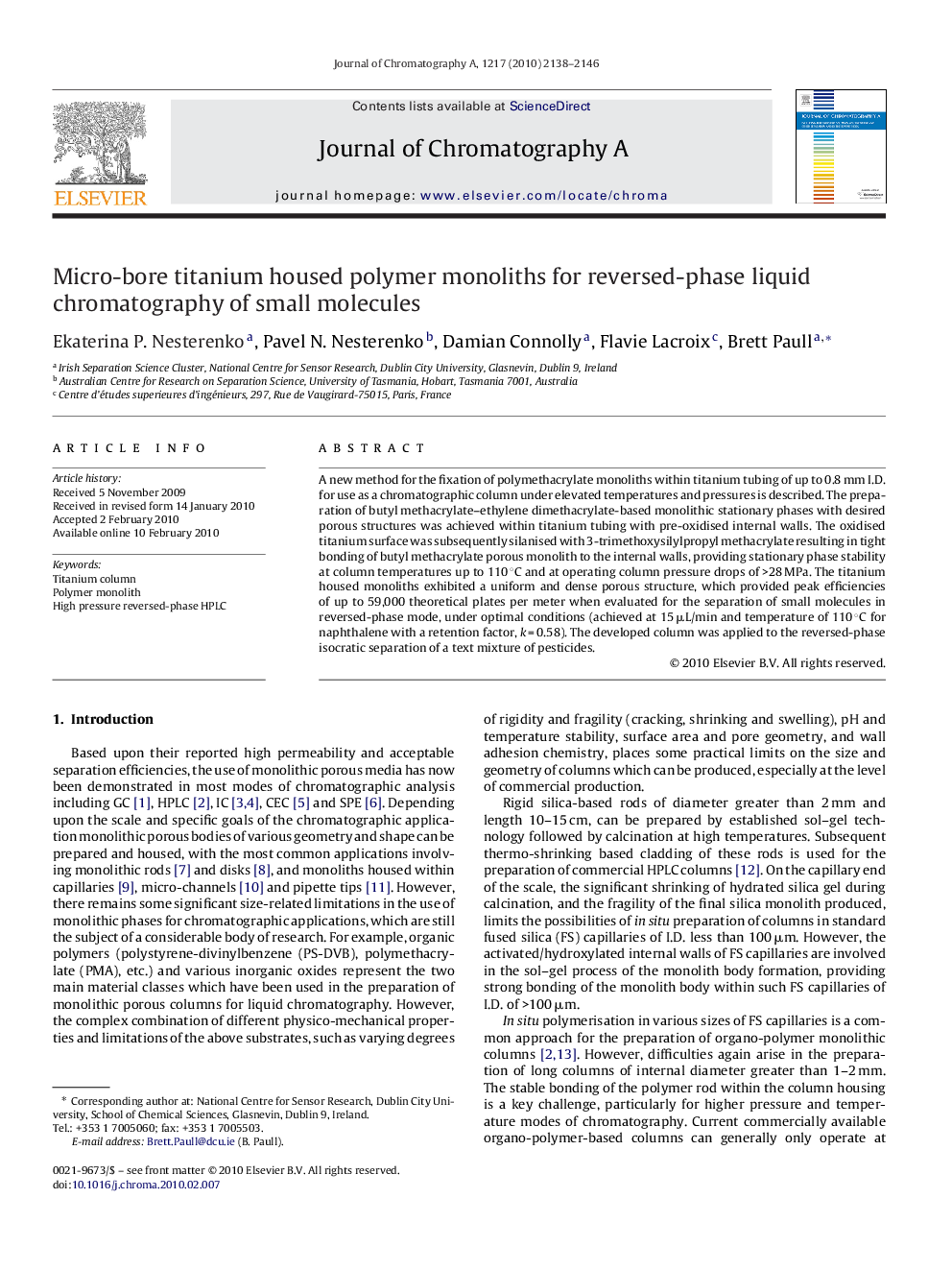| Article ID | Journal | Published Year | Pages | File Type |
|---|---|---|---|---|
| 1204012 | Journal of Chromatography A | 2010 | 9 Pages |
A new method for the fixation of polymethacrylate monoliths within titanium tubing of up to 0.8 mm I.D. for use as a chromatographic column under elevated temperatures and pressures is described. The preparation of butyl methacrylate–ethylene dimethacrylate-based monolithic stationary phases with desired porous structures was achieved within titanium tubing with pre-oxidised internal walls. The oxidised titanium surface was subsequently silanised with 3-trimethoxysilylpropyl methacrylate resulting in tight bonding of butyl methacrylate porous monolith to the internal walls, providing stationary phase stability at column temperatures up to 110 °C and at operating column pressure drops of >28 MPa. The titanium housed monoliths exhibited a uniform and dense porous structure, which provided peak efficiencies of up to 59,000 theoretical plates per meter when evaluated for the separation of small molecules in reversed-phase mode, under optimal conditions (achieved at 15 μL/min and temperature of 110 °C for naphthalene with a retention factor, k = 0.58). The developed column was applied to the reversed-phase isocratic separation of a text mixture of pesticides.
